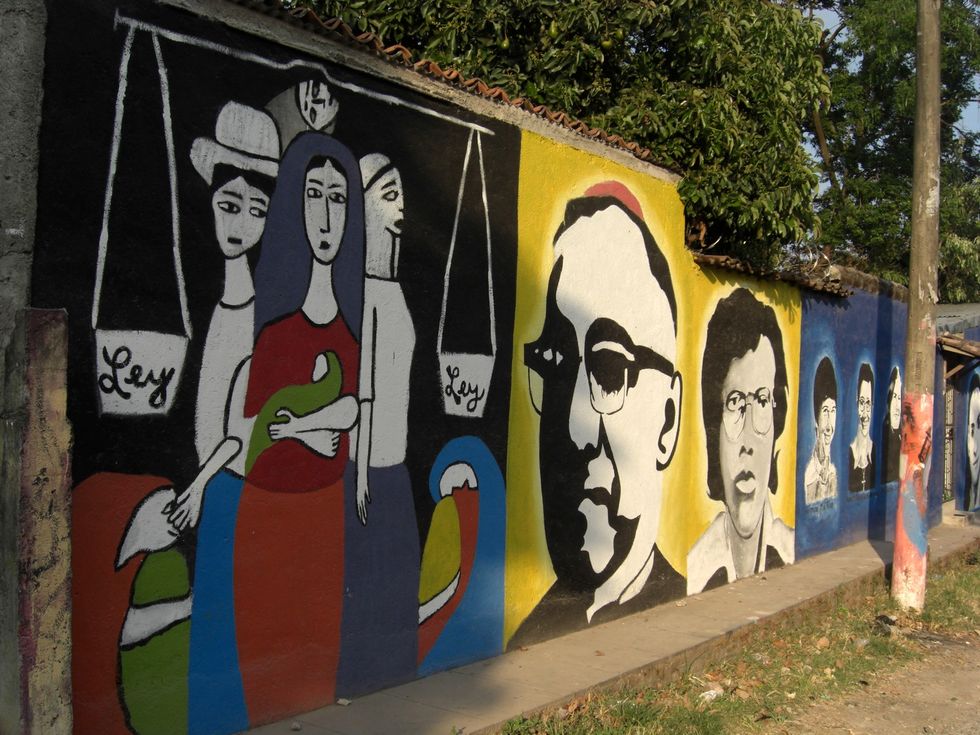The Trump Administration has been anything but kind to the country’s immigrant population. Even before redacting the dream act which left thousands of students without the proper legislation to continue residing in the country, the racial profiling and the numerous attempts to ban Americans from entering the country has proved that the White House is caring less and less about its citizens.
To make matters worse, many are left voiceless and are at the mercy of a government who may or may not take the appropriate measures or have the majority vote to ensure the well-being of all immigrants.
Just this month, the administration took to reversing the immigration policy of the humanitarian program known as Temporary Protected Status (T.P.S.) forcing 200,000 immigrants from El Salvador to leave the United States.
The program began in 1990 to assist citizens of foreign countries in times of national distress and gave them citizenship until they could return to their homeland. El Salvador became one of the first countries to take part of this when the country broke into civil war. The designation for this event was then terminated in 1994.
However, Salvadoreños became a part of the program again in 2001 after a number of earthquakes shook the country prompting landslides and numerous casualties. The status since then has had many possibilities of expiring but has been kept in place by the administrations of former presidents George W. Bush and Obama.
Now the Trump administration has chosen to end their stay once and for all which will give Salvadoreños until September 2019 to leave the country or face deportation.
The Salvadorean government immediately began their plea with the U.S. to continue to allow their people residency. In 2016 alone approximately 17% of El Salvador’s economy was comprised of the money individuals made in America to send to their families back home. This lifeline is crucial for this population where approximately 4 out of 10 homes are below the poverty line. Many families in the home country will not be able to financially support themselves in the event that their provider is deported from the U.S.
On top of that, the country declared a drought emergency in 2016 after a serious lack of rainfall left the water reserves in a critical state. It was among the many countries across Central America whose agricultural economy has been in danger as farmers of corn, coffee, and beans are left with a shortage of water that puts both their crops and their lives at stake.
Gang violence also rages throughout the country, prompting many Salvadoreños to leave for the U.S. The country’s capital, San Salvador, is considered to be one of the most dangerous cities on Earth with a statistic of approximately 103 homicides for every 100,000 citizens carried out by gangs with almost 60,000 members.
While it has been long since the earthquake devastation in El Salvador, this combination of violence and poverty has prompted the continuous renewal of their status. However, the current administration believes that their stay should only be allowed if the original incident for joining the program still exists and for this reason, have taken it upon themselves to remove the protection.
If the issue is not resolved or legislation is not amended to allow immigrants a less severe consequence in the aftermath of T.P.S. termination, many people will be left to decide whether they move back to their country or risk being deported. These people have lived in the U.S. for twenty plus years paying taxes, mortgages, creating businesses, and making a life for themselves. 88% of those in the program are in the labor force. Even if they are not deported immediately, Salvadoreños will lose their work permits and therefore lose any health care benefits for themselves and their families. Studies have shown that of the people benefitting from this program there are now 192,700 American-born children who may no longer be growing up in ‘the land of the free.’
It is rumored that other countries like El Salvador and Haiti (who lost their protection status only a few weeks prior) who remain in the Temporary Protection Status program may be at risk. Honduras and Nicaragua may be next on the list. Florida’s senior senator Bill Nelson called for an extension on Venezuela’s status last year in 2017 following the outbreak of civil war in the country.
The government lent a helping hand and with each status renewal, immigrants were reinforced that they were welcome to stay and achieve great things, away from all the danger that loomed in their homeland. Now they are being forced to uproot all their hard work and the homes they’ve created. There may be legislation that supports this and that probably allows many people to sleep soundly at night. But for a country who prides itself on being the melting pot of cultures and diverse people, we have to see immigrants and those protected by this country as more than just words on a paper but for the human beings that they are.




 StableDiffusion
StableDiffusion StableDiffusion
StableDiffusion StableDiffusion
StableDiffusion Photo by
Photo by  Photo by
Photo by  Photo by
Photo by 
 Photo by
Photo by  Photo by
Photo by  Photo by
Photo by  Photo by
Photo by  Photo by
Photo by 











